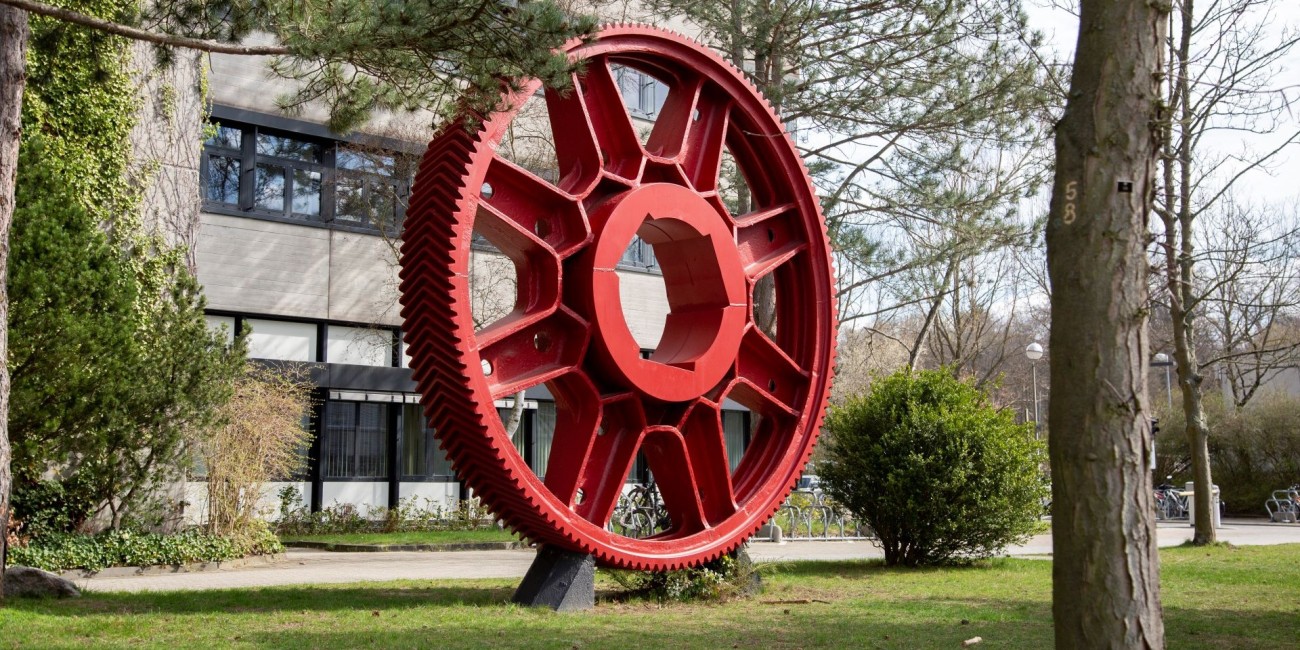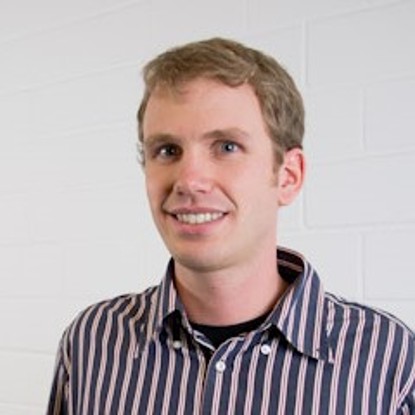Dr.-Ing. Daniel Strang
Contact
Daniel Strang studied Mechanical and Process Engineering from 2005 to 2010 at the Technische Universität Darmstadt and the Technische Universiteit Eindhoven.
As a student, in the time form 2006 to 2010, he worked for Prostep AG at OpenDesc and gained practical experience in the areas CAD applications as well as CAD data conversion.
In January 2011 he became a research assistant at the Department of Computer Integrated Design.
Between the summer semester 2011 and winter semester 2012/2013 Mr. Strang supervised the lecture Virtual Product Development B. The lecture focuses on the functions and importance of the product data management.
SmartF-IT – cyber-physical IT systems in the “Industrie 4.0”
In the research project SmartF-IT, which is funded within the framework of the high-tech strategy by the Federal Ministry of Education and Research (BMBF), technologies are being developed to make manageable the production of small quantities in real time at maximum quality and yet at low costs. These technologies enable the manufacturers to profitably serve fluctuating markets and global trends, to offer a large variety of versions and small series as well as to meet individual customer requirements. SmartF-IT masters this challenge via the application of adaptive cyber-physical IT systems at all levels of production in order to achieve the introduction, implementation and operation of integrated production systems. The control of the the complexity of the design, operation, maintenance and fault management of the cyber-physical production systems in networked Smart Factories is one of the most important features.
Mr. Strang’s research focus is on the information and process modeling in cyber-physical production systems as well as their simulation.
CLAAS
The company processes, especially in product development, are getting more complex due to the increasing complexity of products and the increasing demands for quality and costs. The generated information is the most important input parameters for the client of a process to go through the own process. At this point, the term “drawing quality” plays an important role. The term “drawing quality” is defined as all for the customer relevant information and documents, that have been created taking into account the quality defined by guidelines and standards.
Within the framework of cooperation, Claas norm for the coordination of documents and reference documents by means of definition of processes was developed to support the information needs of customer processes.
The Department of Computer Integrated Design (DiK) supported CLAAS in the context of an industrial project which dealt with the analysis of customer requirements and the resulting process chains. On this basis a recommended course of action for the Claas norm has been defined.
Rolls-Royce
Within the project Global Standardised Features complex rotationally symmetrical components of several aircraft engines were examined. The project dealt with compressor and turbine stages with separate and integrated blades (disks and blisks). Common structures were modularized and categorized in libraries as reusable parts, so-called Standard Features.
In collaboration with manufacturing engineers rules for stable production processes have been developed. The rules are available directly for the design engineer in the CAD application and linked to the respective Standard Features. This creates a semi-automated design process for largely production-oriented models. Further detailed elaboration by the design engineer is then based on this design.
Master-Thesis
- Product information in the CAx model – standardization and reuse in the product development process (2013)
- Development of a concept for design modifications with CATIA/ENOVIA V6 in combination with SAP (2013)
- Development of a concept to illustrate adaptive processes of cyber-physical assembling systems (2014)
Studienarbeit
- Concept for the scenario-based modelling and simulation of the behavior of cyber-physical assembling systems in non-standard events (2014)
Advanced Design Project
- Scientific analysis of the technical product documentation using Autodesk products (2012)
- Intelligente, kommunizierende Stecksysteme für die ressourceneffiziente Fabrik der Zukunft (2014)
Forschungsseminar
- Application of mobile devices in virtual product development (2012)
- Methods of technical product documentation in the product development (2012)
- Analysis and evaluation of the applications of various 3D visualization formats (2013)

Error on loading data
An error has occured when loading publications data from TUbiblio. Please try again later.
-
; {{ creator.name.family }}, {{ creator.name.given }}{{ publication.title }}.
; {{ editor.name.family }}, {{ editor.name.given }} (eds.); ; {{ creator }} (Corporate Creator) ({{ publication.date.toString().substring(0,4) }}):
In: {{ publication.series }}, {{ publication.volume }}, In: {{ publication.book_title }}, In: {{ publication.publication }}, {{ publication.journal_volume}} ({{ publication.number }}), ppp. {{ publication.pagerange }}, {{ publication.place_of_pub }}, {{ publication.publisher }}, {{ publication.institution }}, {{ publication.event_title }}, {{ publication.event_location }}, {{ publication.event_dates }}, ISSN {{ publication.issn }}, e-ISSN {{ publication.eissn }}, ISBN {{ publication.isbn }}, DOI: {{ publication.doi.toString().replace('http://','').replace('https://','').replace('dx.doi.org/','').replace('doi.org/','').replace('doi.org','').replace("DOI: ", "").replace("doi:", "") }}, Official URL, {{ labels[publication.type]?labels[publication.type]:publication.type }}, {{ labels[publication.pub_sequence] }}, {{ labels[publication.doc_status] }} - […]


